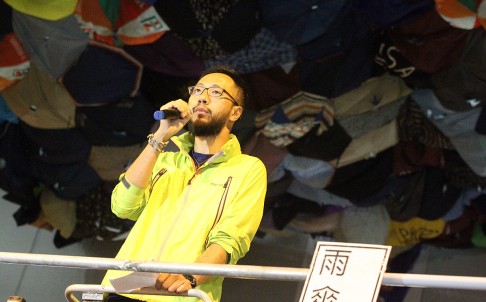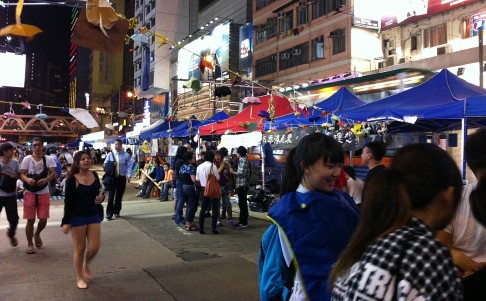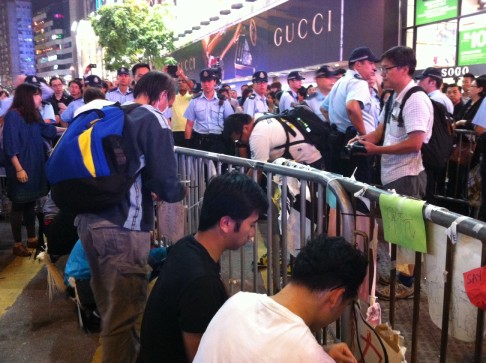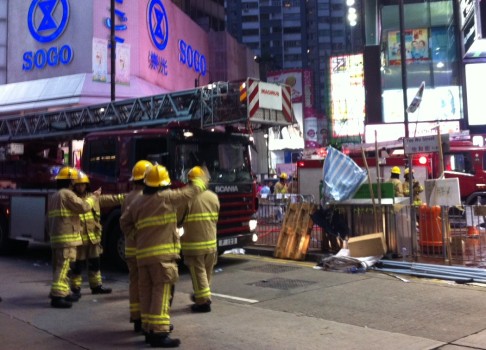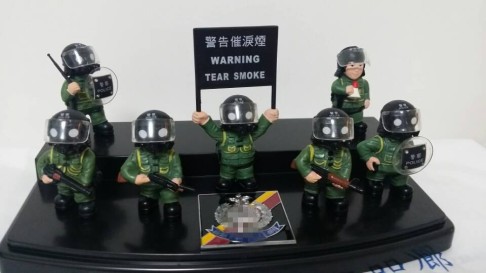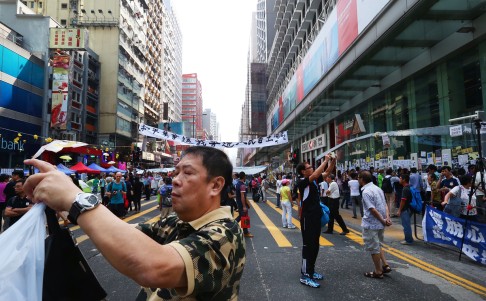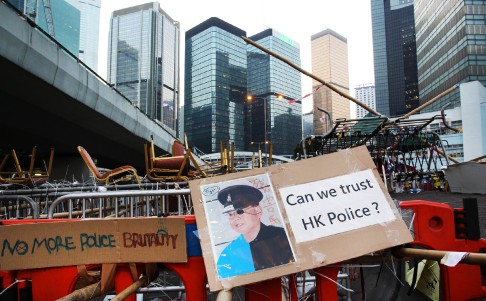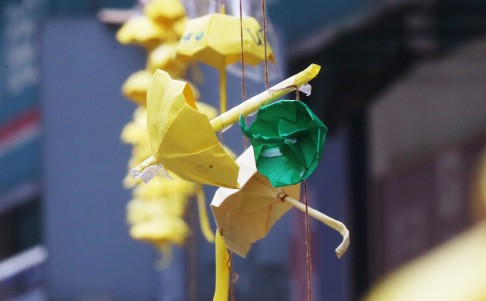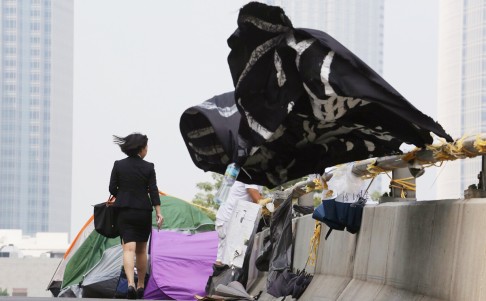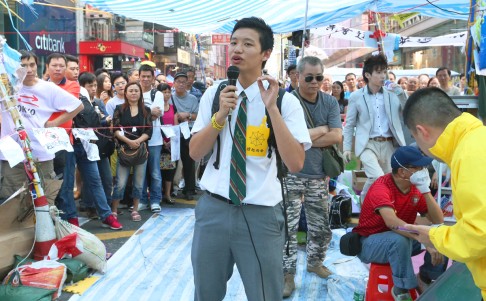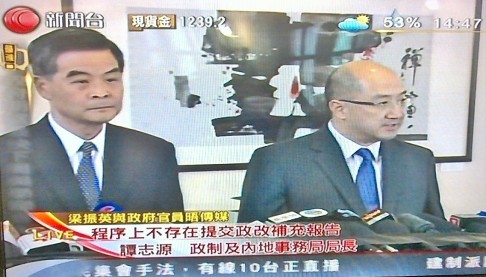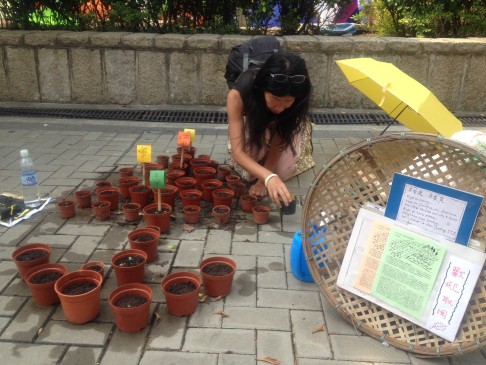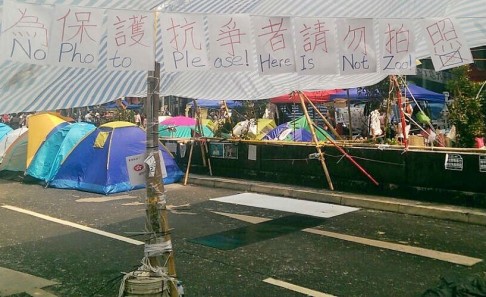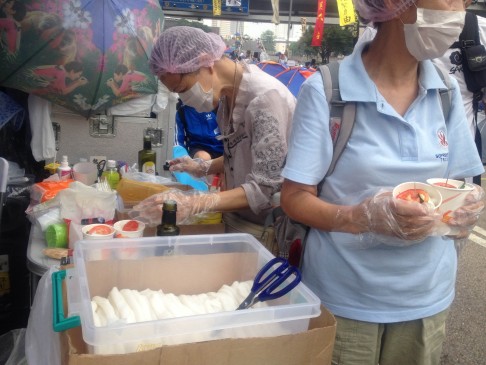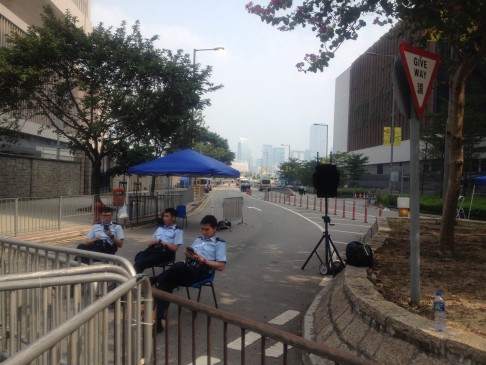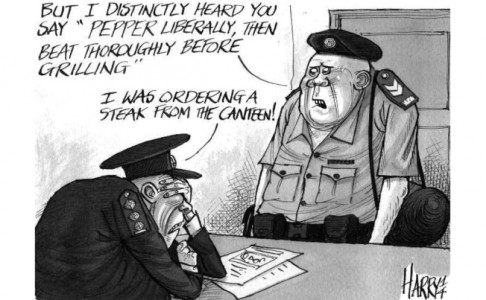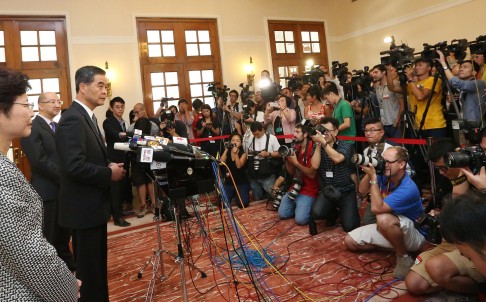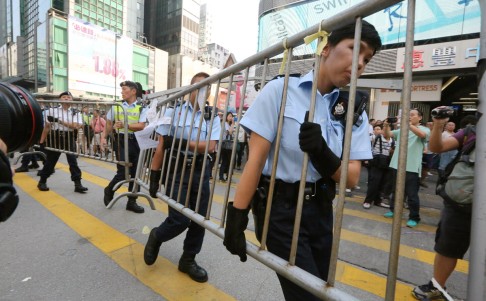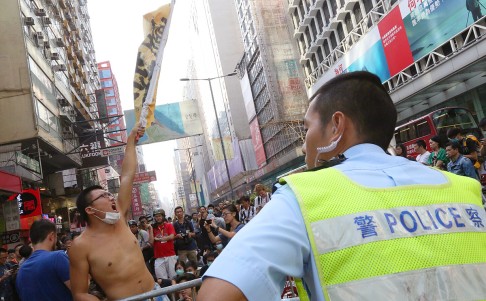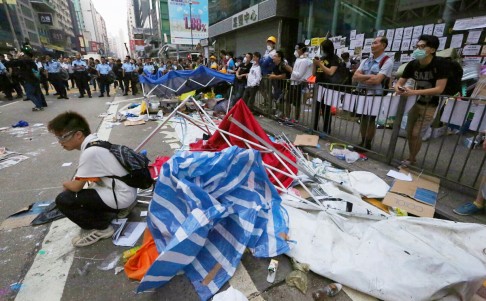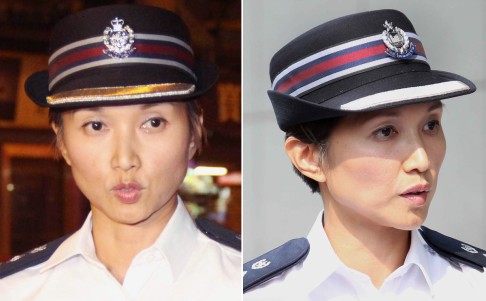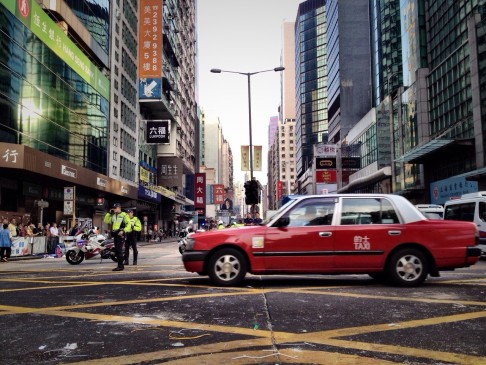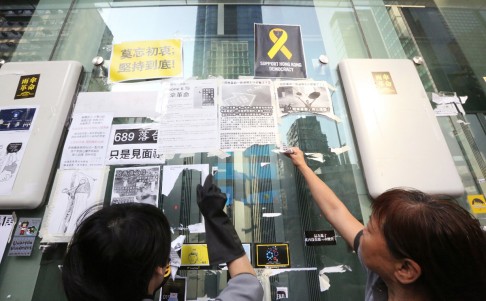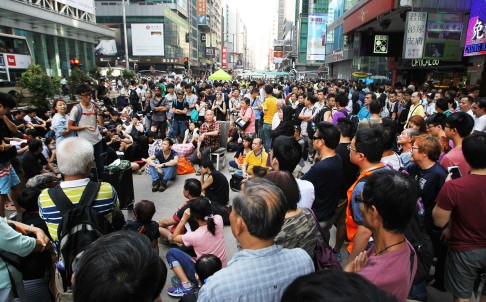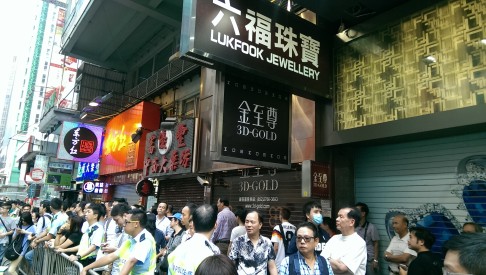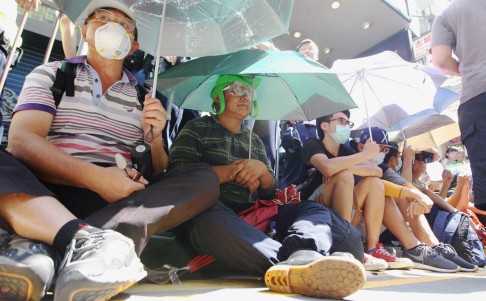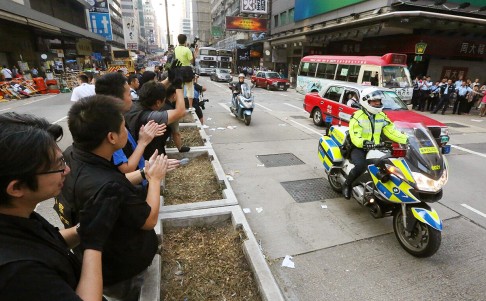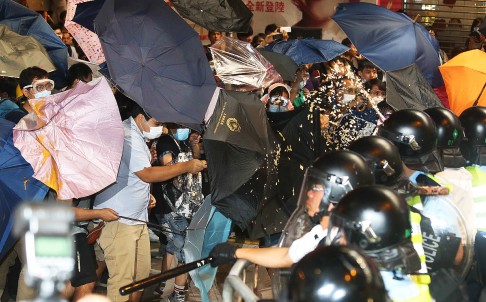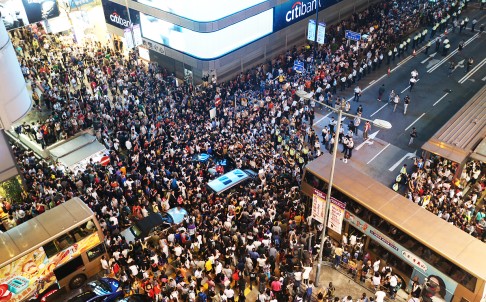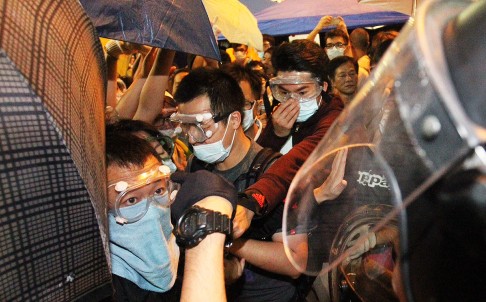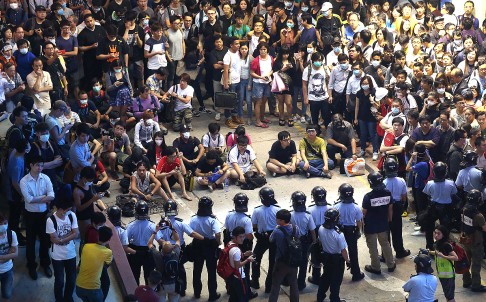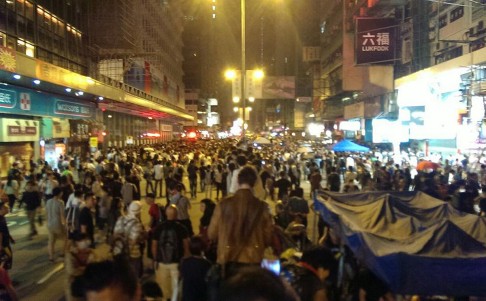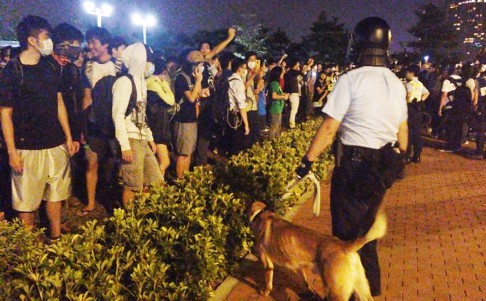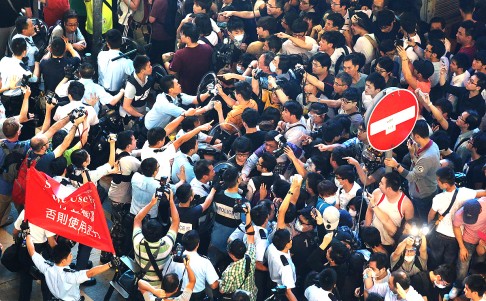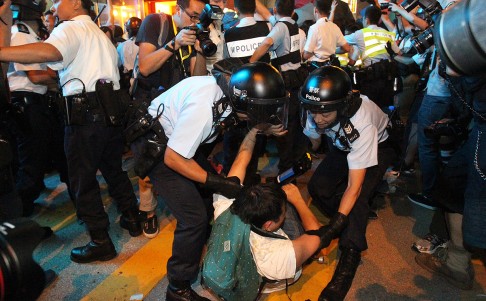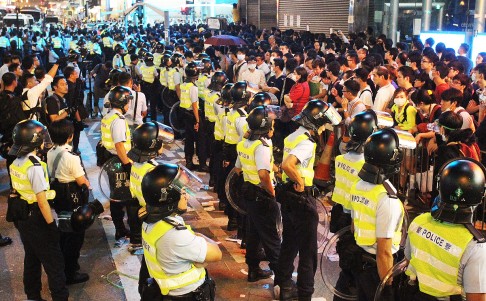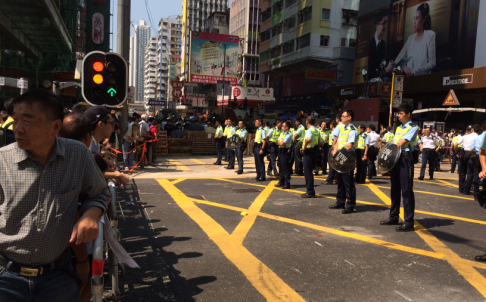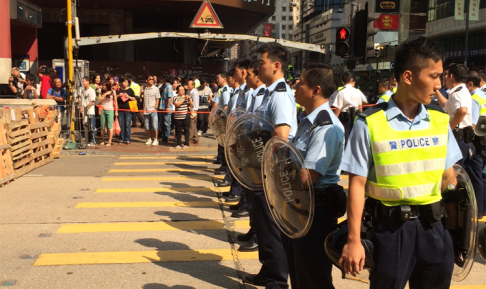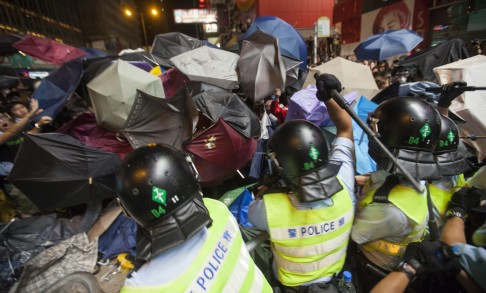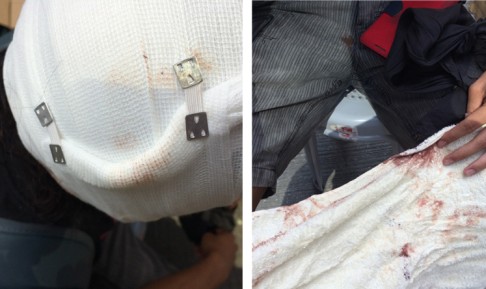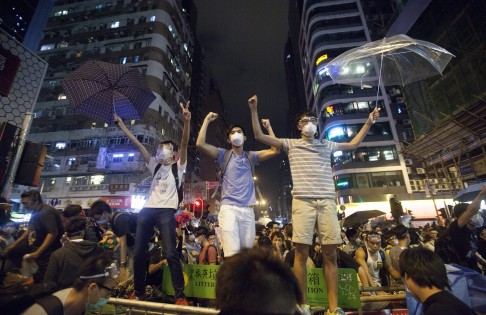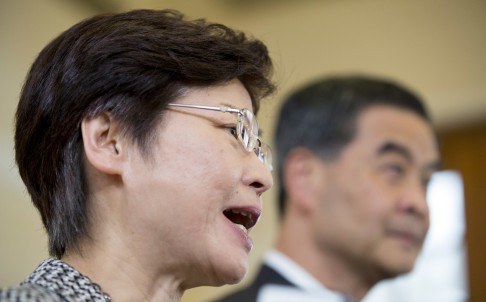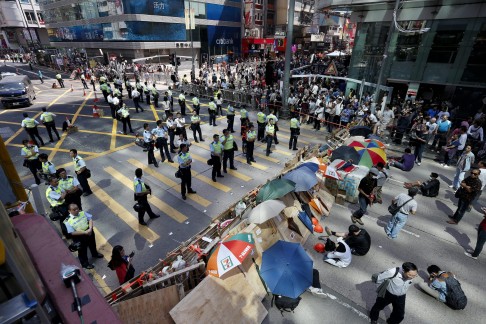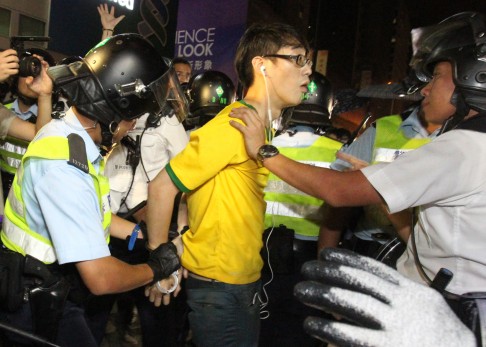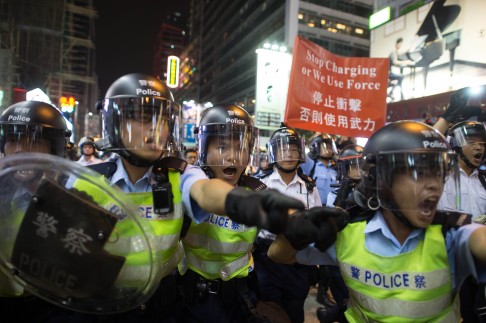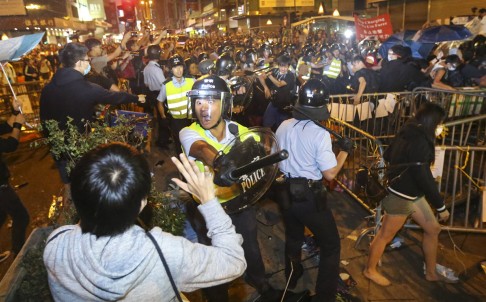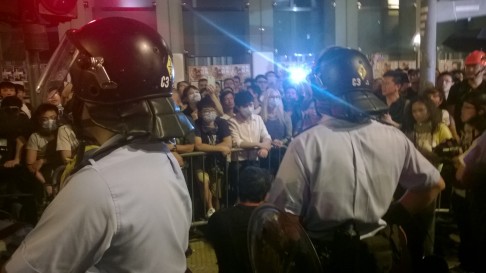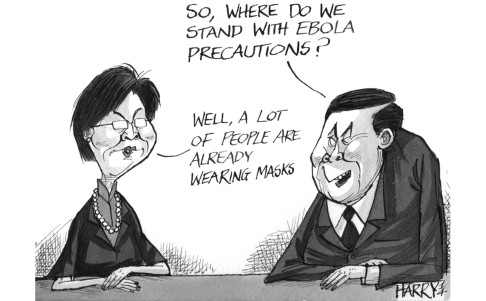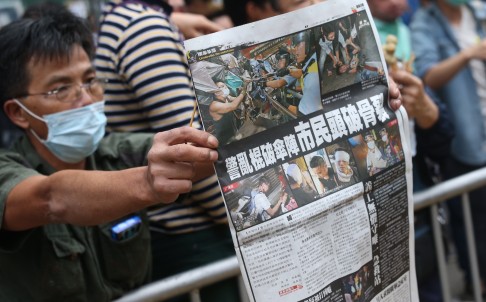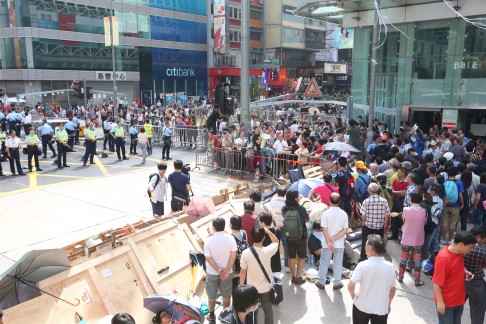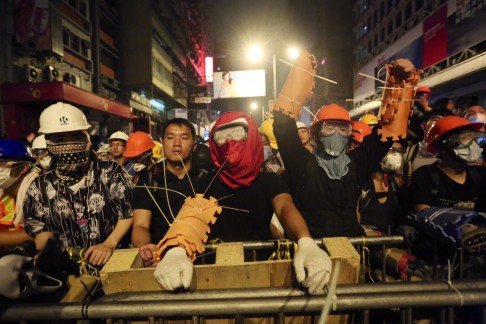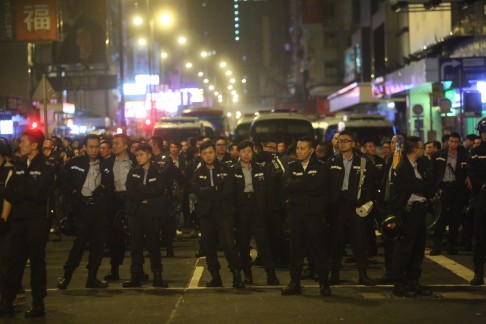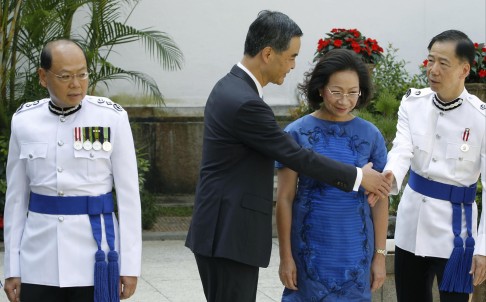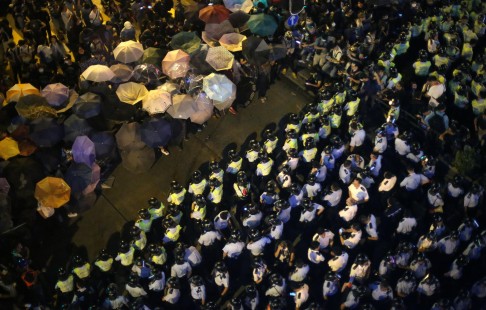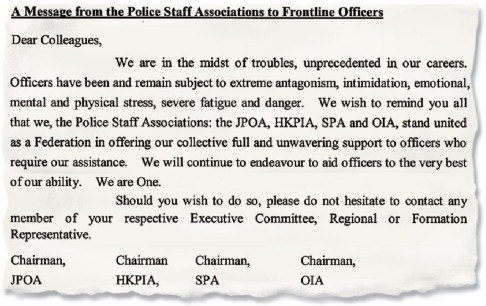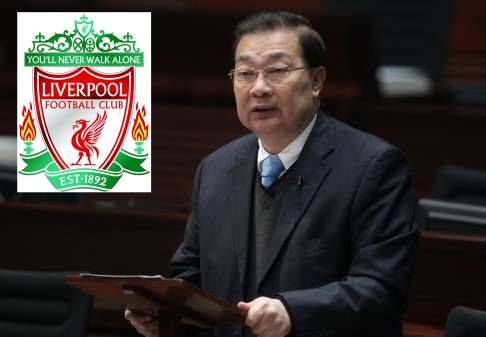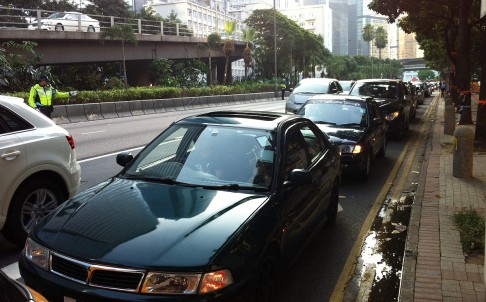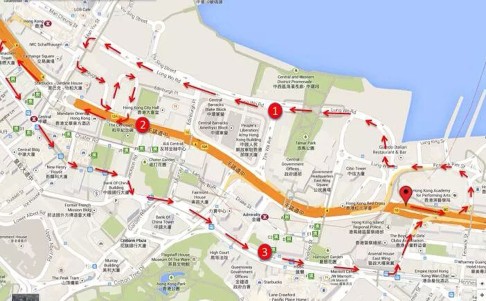Re: Give me Liberty or Give me Death! Giordano Tycoon joins Occupy Central!
Sinkieland's press is far worse
But it's good that in Fragrant Harbour
They are alert to any infringements
On cherished freedom of expression
Is talk of foreign 'interference' and revolution a story too far for Hong Kong media?
Albert Cheng [Teochew nang in Hongkieland just like Li Ka-Shing, see link for details:
http://en.wikipedia.org/wiki/Albert_Cheng what is the colour of the kar ch$ng again?)] says muted coverage of US senators' call for Obama to support Hong Kong's democratic movement raises questions about press freedom
In Chinese politics, it seems, a rose by any other name would not smell as sweet. It is customary for the Chinese Communist Party to hammer out an official "determination" of the nature of a political phenomenon to justify its subsequent action against opponents.
In April 1989, the China Daily labelled the student anti-corruption protests in Tiananmen Square a counter-revolutionary riot engineered by a tiny minority whose ulterior motive was to conspire to oust the party and the country's political system. The provocative editorial served as the guiding thought for the subsequent military crackdown on the student movement in June.
In the West, Hong Kong's campaign for a genuine democratic arrangement to elect the next chief executive in 2017 has been termed an "umbrella revolution". The term has touched a raw nerve at the top in Beijing. Local activists have urged the media to refrain from calling their actions a revolution, which might form the basis of an iron-fisted response to their demands, which have nothing to do with the mainland ruling system.
Scholarism and the Hong Kong Federation of Students - the engine behind the street demonstrations - have co-written to President Xi Jinping , seeking to convince him they are not about to start a revolution and have nothing to do with any foreign forces.
Last weekend, in Russia, Vice-Premier Wang Yang said Western countries had been backing the opposition camp to foment a "colour revolution" in Hong Kong. Other mainland officials said the same. The tone and manner in which Chinese officials have been denouncing the Occupy movement are reminiscent of what led to the 1989 crackdown.
Wang's statement followed a petition by 23 US senators urging US President Barack Obama to act in support of the Hong Kong democratic movement. It was frowned upon as another piece of evidence that the US is indeed the "black hand" behind Occupy.
The statesmen urged Obama to speak out personally in support of the "umbrella movement". The letter reminded Obama that he is empowered to impose economic sanctions on China. "The US-Hong Kong Policy Act of 1992 states that it is US policy to help preserve Hong Kong's unique status and to support democratisation in Hong Kong. As you know, the act also authorises you to suspend trade and economic provisions should Beijing not provide sufficient autonomy for Hong Kong as outlined by the Joint Declaration."
It added: "Beijing's backsliding on its commitments under the Sino-British Joint Declaration poses a significant threat to Hong Kong's position as a centre of international trade and finance and adds to concerns about China's commitment as a responsible participant in the international system. Over the past week, the people of Hong Kong have reminded the world what is at stake. We urge you and your administration to take demonstrable, meaningful steps to help ensure that Beijing maintains its commitments to the people of Hong Kong."
It is rare for almost a quarter of the assembly, including many political heavyweights, to have co-signed a petition. They want Obama to act either before, or while he attends, next month's Asia-Pacific Economic Cooperation summit in Beijing.
Political inclinations aside, this concerted effort is undeniably newsworthy. Yet, oddly, none of the mainstream news media seems to have covered it in print or online. It would appear that, in the eyes of media proprietors, it would be politically incorrect to amplify this foreign action to "interfere" with Hong Kong and, by extension, Chinese domestic affairs. None wants to risk being on the wrong side in this, which Beijing considers to be a matter of national security.
For those who thrive on conspiracy theories, the senators' action is a godsend - proving there is indeed a foreign scheme against China. What is hard to understand is that even the likes of Apple Daily did not to report the senators' initiative.
Perhaps the newspaper is so involved with Occupy that it does not want to further complicate matters by being accused of "colluding with foreign powers"? Perhaps there are other reasons. Either way, the public has a right to know.
International media have not paid Hong Kong much attention since the 1997 handover and their coverage and analysis of the current situation pales by comparison to that of the local news corps. But are accusations of a foreign-incited revolution now too much for the Hong Kong press to bear?
The free flow of information and a vigorous media are the cornerstones of all other civil liberties, on which Hong Kong is able to thrive as an international financial hub. Sadly, our strong tradition of press freedom seems to have started to rot - from within. It is up to Hong Kong citizens to stop it getting worse.
Albert Cheng King-hon is a political commentator.
[email protected]
http://www.scmp.com/comment/insight...nterference-and-revolution-story-too-far-hong



